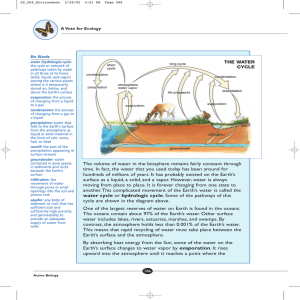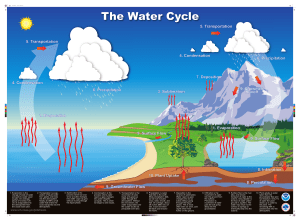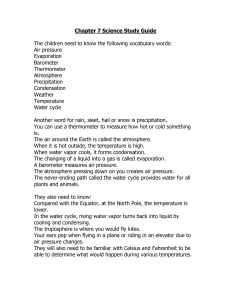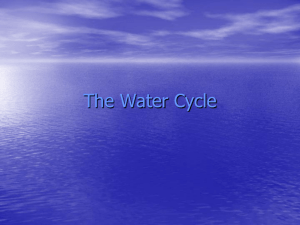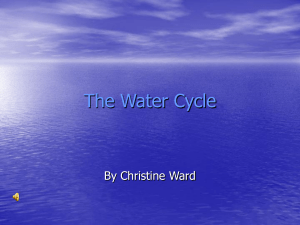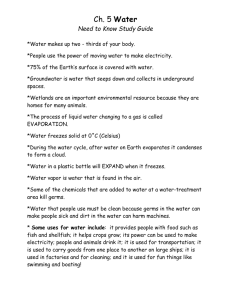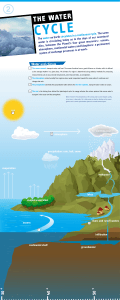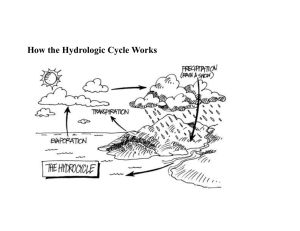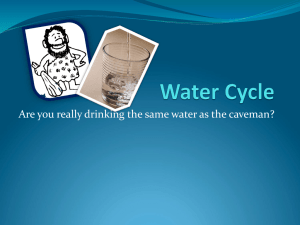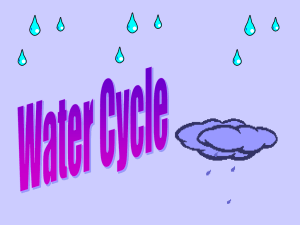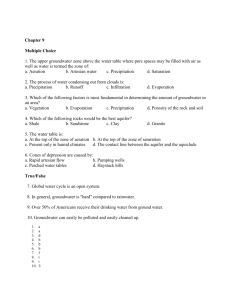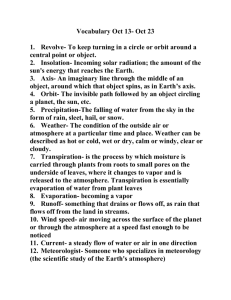Water Cycle Review Sheet with Answers
advertisement
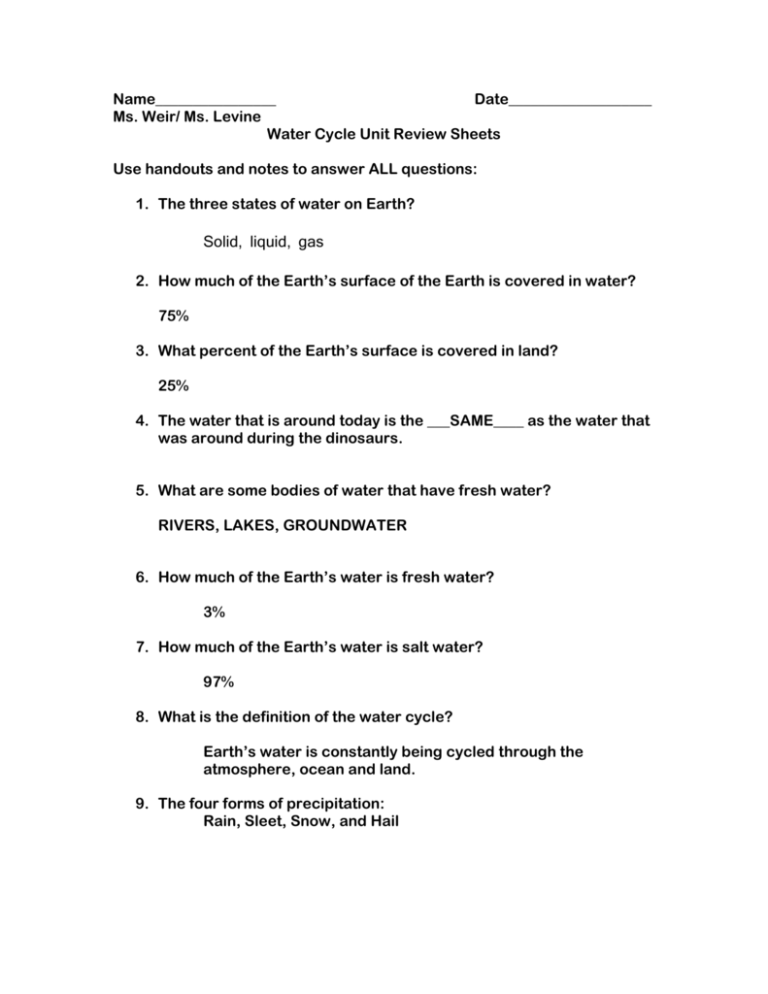
Name________________ Date___________________ Ms. Weir/ Ms. Levine Water Cycle Unit Review Sheets Use handouts and notes to answer ALL questions: 1. The three states of water on Earth? Solid, liquid, gas 2. How much of the Earth’s surface of the Earth is covered in water? 75% 3. What percent of the Earth’s surface is covered in land? 25% 4. The water that is around today is the ___SAME____ as the water that was around during the dinosaurs. 5. What are some bodies of water that have fresh water? RIVERS, LAKES, GROUNDWATER 6. How much of the Earth’s water is fresh water? 3% 7. How much of the Earth’s water is salt water? 97% 8. What is the definition of the water cycle? Earth’s water is constantly being cycled through the atmosphere, ocean and land. 9. The four forms of precipitation: Rain, Sleet, Snow, and Hail 10. What is evaporation? The sun heats uo liquid water and changes it to a gas which rises into the atmosphere. 11. What state changes take place during evaporation? Changes from liquid to gas. 12. Why? The sun heats the liquid. 13. What is condensation? the water vapor rises higher into the atmosphere, it cools and becomes a liquid again. 14. What happens to water vapor in the atmosphere? Changes from gas to liquid. 15. How do Clouds form? When a large amount of water vapor condenses, it results in the formation of clouds. 16. What is precipitation? When the water in the clous gets too heavy, the water fells back to the earth. 17. What happens to the water droplets that make precipitation occur? Water droplets combine and get too heavy for AIR to hold. 18. What is groundwater? When it rains on the land, some of the water is absorbed into the ground forming pockets of water. 19. Where does groundwater go? It eventually returns to the ocean. 20. What is the driving force of the Earth’s weather? THE SUN 21. What is transpiration? When water evaporates from plants. (sweats) 22. What is run-off? Rain that runs off land directly into streams or rivers. 23. Which body of water is most of Earth’s water found? The ocean. *****Additional Things to Know:***** The Water Cycle Diagram BOTH of The Water Cycle Foldable Note Packets The Graphic Organizer with Water Cycle Vocabulary **All PowerPoints can be found on Ms. Weir’s webpage. **
